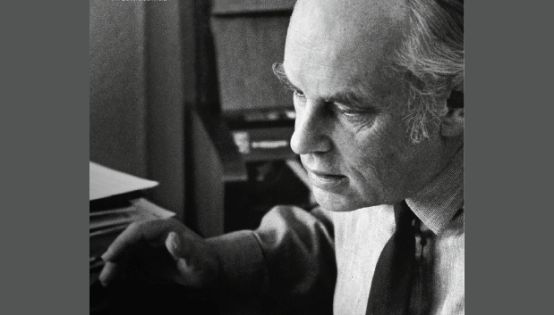Works by a mountain man with a strong character
Rainer Held conducts five major symphonic works by Caspar Diethelm from Central Switzerland.

Many insiders are familiar with him: Rainer Held, the Lucerne conductor and music teacher with Grisons roots, who has been head of the music department at the Lucerne University of Teacher Education for many years. Of course, like so many Swiss, he has to live out his vocation as a conductor abroad, be it as principal guest conductor of the Minsk Radio Symphony Orchestra, in collaboration with the Novosibirsk Philharmonic Chamber Orchestra or with the Royal Scottish National Orchestra. Held has repeatedly attracted attention with interesting CD recordings: Works by Swiss composers such as Carl Rütti, Arthur Honegger and Ernst Widmer.
Now he is presenting a three-CD compendium on Guild about the Central Swiss composer Caspar Diethelm (1926-1997), whose works he had already come to know and appreciate during his studies at the Lucerne Conservatory. He describes the composer as a "gnarled mountain man with a strong character", who fits into the ranks of the Swiss he particularly appreciates. Held characterizes him aptly: "Diethelm expanded the tonality, but did not abandon it. This makes his music comprehensible despite its expressiveness and complexity. And in doing so, he continued the work of Arthur Honegger or Paul Hindemith in the second half of the 20th century." You can hear this for yourself on this exciting recording of five of Diethelms' major symphonic works. The archaic sonority and metrical energy, with sometimes somewhat thick instrumentation, bring this music close to the New Objectivity.
The Symphonic Suite Saturnalia op. 200 impressively illustrates these qualities, also thanks to the Royal Scottish National Orchestra conducted by Held. The seven-part work, balanced in the duration of the individual movements, captivates with the ostinato-like metric pulse of the first movement, peppered with folk music phrases, as well as the funeral march-like Lento. After so much profound force, one is grateful for the jocular, lively and cheerful fourth movement.
The pièce de resistance of these Diethelm CDs is the Symphony No. 5 Mandala op. 180, in a classical four-movement form, the composer succeeds in creating an exciting arc over the entire work: the Allegro moderato, a sonata movement, is followed by a three-part Vivace with a gloomy, oppressive middle section. The Larghetto, a movement that begins elegiacly and twice builds up to passionate climaxes, is particularly successful. The Royal Scottish National Orchestra's playing is agile and rhythmically exciting, with the many color nuances of the trumpet, flute, clarinet and bassoon providing variety and diversity.
Diethelm spoke at length about the creative process in Mandala "In any case, I finished the work under enormous mental and physical strain, with unprecedented moments of happiness and times of deepest dejection, vacillating between self-criticism, doubt and feelings of great inner strength ..." These notes are taken from the booklet, in which the pianist and daughter of the composer, Esther Diethelm, introduces and comments on the individual works with great expertise. A valuable recording by Rainer Held, who unfortunately has far too little presence as a conductor in Switzerland.
Caspar Diethelm: Symphonic Works, Royal Scottish National Orchestra, conducted by Rainer Held. Guild GM3CD 7808









